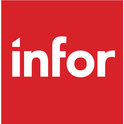

Our industry is entering a phase where AI is no longer just powering chatbots or enabling precise revenue forecasts—it’s beginning to connect directly to core operational systems. Late last year, Anthropic introduced the Model Context Protocol (MCP), an open standard and open-source framework designed to give AI systems like large language models (LLMs) a universal way to integrate with tech stacks. For hospitality, this means everything from property management systems to revenue management and live inventory feeds. For hoteliers, MCP might seem like a direct path for AI agents to handle bookings, checking availability, applying loyalty discounts, and confirming reservations without OTAs or even the hotel’s own engine. In reality, MCP is built for companies developing AI agents, not as a connectivity layer for travelers’ personal assistants. Much like mobile apps, guests would need their own interface to access it, so hotels should not expect consumers to plug into MCP directly. It’s also important to note what MCP is not. It does not give AI agents environmental awareness or the ability to sense user context, that role belongs to Agent Environmental Awareness (AEO). MCP is about managing data flows and processes across systems, ensuring consistency and control, while AEO enables agents to interpret and respond to real-time context. The two are often conflated, but they serve very different purposes. While MCP is still in its infancy, some hotel technology providers are already jumping in feet first. In theory, it could enable a future where bookings are transacted entirely via AI agents that tap directly into a hotel’s ARI (Availability, Rates, Inventory) systems. Imagine a guest asking their preferred AI assistant to book a room, and the LLM via MCP queries live rates, applies loyalty discounts, and confirms the reservation without touching a hotel’s website or OTA feed. The potential for easier integration is clear. MCP could replace fragile, custom-built APIs with a universal connection layer. For revenue managers, this means new AI tools could be deployed more quickly without the delays of one-off integrations. For guests, it could support smoother, more personalized booking experiences. The concern is how quickly some vendors are rushing in. Much like the early chatbot wave, there’s a risk of adopting MCP before issues around governance, security, and operations are fully understood. The appeal of MCP is clear, but so are the risks. Security researchers are already identifying potential vulnerabilities, from exposed MCP servers to poorly validated function calls that could give malicious actors a backdoor into sensitive systems. In a hotel environment where guest data, payment details, and rate strategies are all high-value targets these risks are magnified. Governance is another unresolved challenge. MCP’s flexibility means it can give AI agents the ability to perform real-world actions without human intervention. In hospitality, that could extend to rate changes, booking confirmations, or even modifications to guest profiles. Without clearly defined boundaries and approval processes, a single flawed or malicious prompt could cause significant operational and reputational damage (Composio). Responsibility for MCP oversight won’t sit neatly in one department. IT will be tasked with securing endpoints and managing authentication, but revenue and distribution leaders will need to determine which systems AI agents can access and what actions they can take. Operations teams, meanwhile, will have to ensure that any AI-driven process aligns with service standards and guest expectations. The absence of a coordinated governance model risks leaving dangerous gaps. What makes MCP so intriguing and potentially disruptive is its ability to let AI move beyond recommendations and into real transactions. If large language models could plug directly into a hotel’s ARI feeds, pricing and availability wouldn’t just be displayed, they could be updated instantly in response to a guest’s question or a travel planner’s request. That also opens the door for smarter upselling. An AI agent could recognize when a guest books a standard room, flag that they qualify for a discounted room upgrade, and confirm the upgrade immediately. The same goes for group and events business: AI could review live inventory across multiple properties, combine it with historical booking data, and then suggest optimized rates within seconds. But the opportunity comes with serious risk. ARI is one of the most valuable assets a hotel has. Exposing it directly to AI agents creates new openings for problems such as price scraping, rate manipulation, or unauthorized bulk bookings. The upside is real, but so are the stakes. The hospitality industry is already under pressure to adopt AI quickly. In the Infor Global Productivity and Technology Study, 80% of organizations agreed that future success will depend on how effectively they use and adopt new technologies. But “adopt quickly” should not be confused with “adopt blindly.” MCP is not just another API layer. It represents a myriad of ways in how AI interacts with operational systems. It could eventually underpin the next generation of AI-driven hospitality experiences, from instant bookings through voice assistants to hyper-personalized rate offers delivered in real time. But in its current early stage, the risks particularly around security and governance are significant. Having both contributed to and observed decades of innovation in our industry, I believe hotel technologists should be ready to experiment yet equally prepared to say “not yet” until the framework and their own internal readiness meet the operational and security standards the hospitality sector demands. After all, in today’s fast changing landscape where guests’ trust is currency, the real measure of MCP’s success won’t be how fast hotels adopt it, it will be how safely they do. Ready to unlock the power of AI for your property? Download the ultimate guide to choosing an AI-first hotel revenue management system.Key Risks and Governance Questions
How MCP Could Reshape Hotel Bookings
The Bigger Picture: Accelerating Change Without Losing Control
Contact
Alan Young
VP, Hospitality Strategy, Infor
Email: alan.young@infor.com
Organization
Infor
https://www.infor.com/industries/hospitality/
641 Avenue of the Americas
USA
- New York, NY 10011
Phone: 1 800 260 2640
Recent News
 Model Context Protocol (MCP): The Hidden Risks Hoteliers Must Uncover Before Embracing AI’s Latest Integration Standard | By Alan Young Model Context Protocol (MCP): The Hidden Risks Hoteliers Must Uncover Before Embracing AI’s Latest Integration Standard | By Alan Young |
 Infor’s David Poprawka on Sustainable AI, Human-Centred KPIs, and the True Role of Technology in Hospitality | By David Poprawka Infor’s David Poprawka on Sustainable AI, Human-Centred KPIs, and the True Role of Technology in Hospitality | By David Poprawka |
 New Preferred Partnership Between Infor and Plusgrade Delivers High-Margin Upsell Opportunities for Hotels New Preferred Partnership Between Infor and Plusgrade Delivers High-Margin Upsell Opportunities for Hotels |